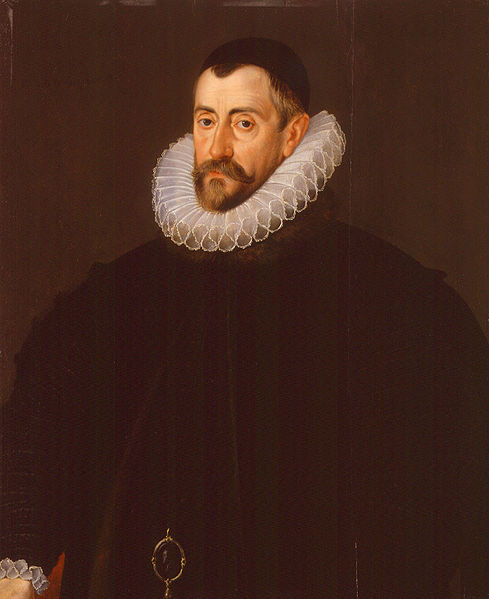 On this day in history, 4th April 1572, the writer William Strachey was born in Saffron Walden in Essex, England. He was the son of William Strachey and Mary Cooke. He was educated at Emmanuel College, Cambridge, and by 1605 had joined Gray's Inn in London.
On this day in history, 4th April 1572, the writer William Strachey was born in Saffron Walden in Essex, England. He was the son of William Strachey and Mary Cooke. He was educated at Emmanuel College, Cambridge, and by 1605 had joined Gray's Inn in London.
Strachey married his first wife, Frances Forster, in 1595 and had two sons by her, William and Edmund. Frances had died by 1615 and William took a second wife, a widow called Dorothy.
In 1609, after working for a few years as secretary to the English Levant Company and to the English Ambassador in Turkey, Thomas Glover, a post from which he was dismissed in 1607, Strachey bought two shares in the Virginia Company and set sail from England to the New World aboard the "Sea Venture" with Sir Thomas Gates and Sir George Somers. The ship was run aground off the coast of Bermuda when it was blown off course by a hurricane, and it is this incident, which involved the party being stranded on the archipelago for a year and having to build boats to make their way to Virginia, which was published as A True Reportory of the Wracke, and Redemption of Sir Thomas Gates, Knight in 1625. This work also included a critical report of the management of the Jamestown colony in Virginia, the colony founded in 1607.
In 1609, Strachey became the Virginia Company's secretary to the colony, replacing Matthew Scrivener, who had drowned, and he was tasked with the writing of an account of the colony. He returned to England in 1611 and it was in London that he wrote his The Historie of Travaile Into Virginia Britannia, which the Virginia Company refused to publish because Strachey was critical of the colony. It was not published until 1849.
William Strachey died in June 1621 at the age of 49. He died in poverty after finding it hard to get his work published because it was critical of the management of the colony. He left the following sad verse:
"Hark! Twas the trump of death that blew
My hour has come. False world adieu
Thy pleasures have betrayed me so
That I to death untimely go."
Strachey was laid to rest at St Giles' Church, Camberwell.
William Strachey's works include poems published in 1604 and 1605, for example the sonnet Upon Sejanus, and:
- A true reportory of the wracke, and redemption of Sir THOMAS GATES Knight - His eyewitness account of the shipwreck of the "Sea Venture", including a report on the management of the Jamestown colony in Virginia.
- For The Colony in Virginea Britannia. Lawes Divine, Morall and Martiall - A compilation of the colonial laws put in place by the governors of the Virginia colony.
- The Historie of Travaile Into Virginia Britannia - A more detailed account of life in the Virginia colony which Strachey dedicated to the Earl of Northumberland. Click here to read it online.
- A Dictionary of Powhatan - There are only two records of the language of the Virginia Powhatan tribe: Strachey's dictionary and the works of Captain John Smith.
These works are excellent primary sources for the history of the English colonisation of North America and it is thought that they were used by William Shakespeare for his play "The Tempest".
Trivia: Strachey's signet ring was found in 1996 in the ruins of Jamestown, Virginia - click here to see a photo of it and to read more about it.
Notes and Sources
- Wood, Betty. “Strachey, William (1572–1621).” Betty Wood In Oxford Dictionary of National Biography, online ed., edited by David Cannadine. Oxford: OUP, 2004. http://www.oxforddnb.com/view/article/26623


Leave a Reply